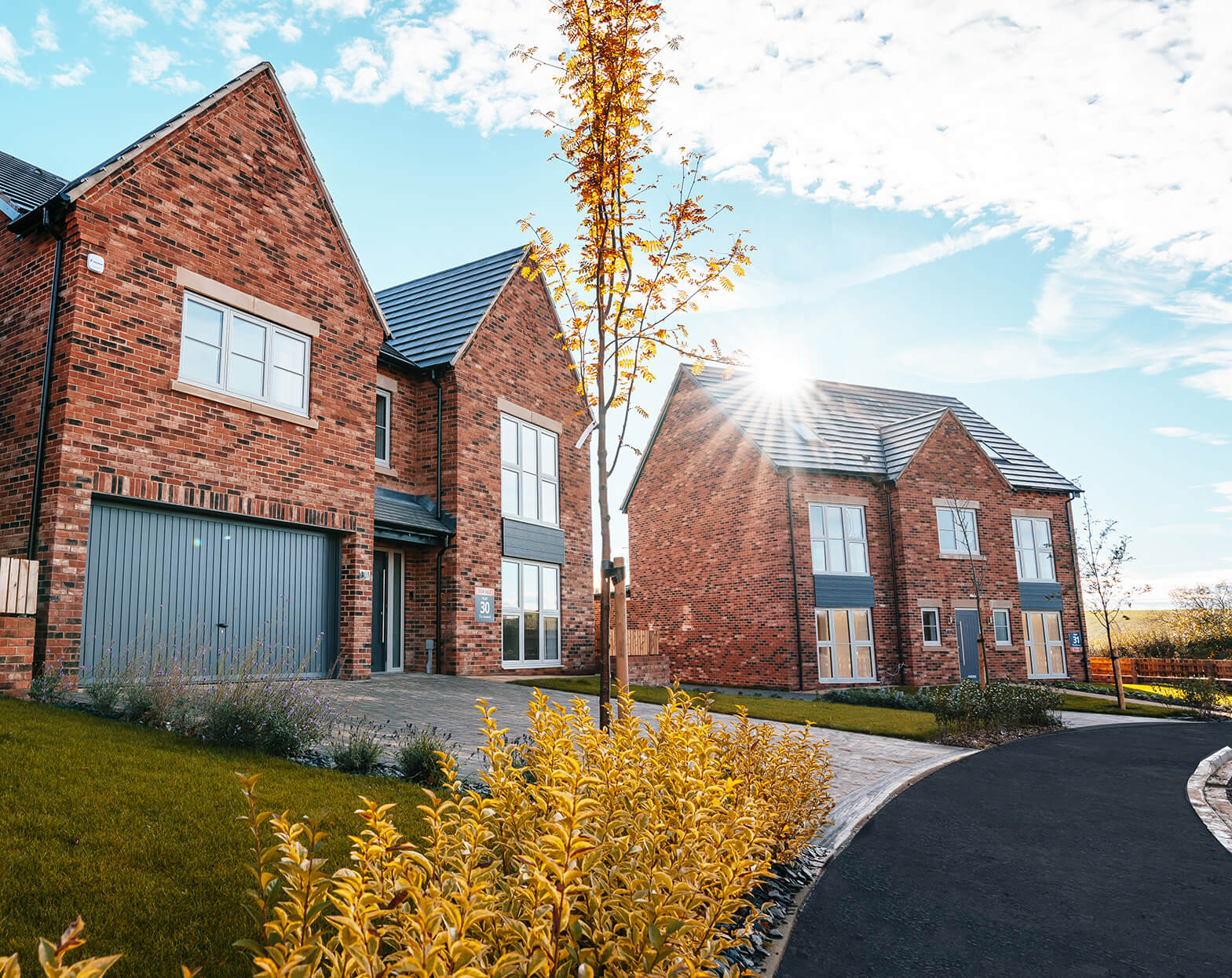7 reasons property is still a sought-after asset for investors
Property has long been a popular option for investors. It's something we all have a relationship with, and as such it's something we all have at least a basic understanding of.
You buy a house, you keep it and you sell it for a profit. It's arguably the one type of investment we could all explain how it works.
But one of the most interesting points of property investing is that it's never decreased in popularity to the extent that it's become an unfavourable asset class. As with every investment opportunity, there have undoubtedly been peaks and troughs, but when was the last time you heard people say not to invest into property?
Property has - and most likely always will be - a particularly appealing investment opportunity, and from my own point of view, there are 7 key reasons why it's still such a sought after asset class today.
1. It can provide a recurring income
In a world where investment opportunities are ever more accessible, but many bring with them a considerable amount of volatility (we've all seen the news about Bitcoin), it's not surprising that investors are looking for consistency; a regular stream of income.
Sometimes this will be to provide an income to support a lifestyle or lifestage (such as throughout retirement), but other times it can be to add a certain level of consistency whilst making other investments that are susceptible to greater volatility.
Buy To Let is the most common type of property investing that can generate a regular income, but it's in no way the only option. In fact, it's becoming less popular due to recent changes to the tax reliefs associated with Buy To let properties, in turn increasing the awareness of many of the other income-based property investment options - from funds through to shares.
2. Growth is a key option for property investment
With investing into property for a regular income one of two common options, the second is investing for growth.
On the highest of levels, investing for growth is the process of making an investment with the sole intention of keeping it for an often undetermined period of time before selling it for a profit.
Investing into residential property developments are a perfect example of this, especially when you're investing at the very early stages.
For instance, if you invested (either directly or indirectly) into a deal at the point of buying the land, the ultimate growth-based end goal is to not sell until the homes are built on the land. In a positive market, your investment would grow at every stage, from planning permission on the land through to home sales themselves.
These stages do offer valuable exit points (each with, generally speaking, a profit associated with them), but the ideal scenario would produce an enviable profit when the homes are built and sold.
3. You can make a genuine impact on future generations
It's no surprise when we say there's a real housing crisis in the UK. There simply aren't enough homes for our growing population, and this is causing an array of problems.
As we talked about recently, the 2017 autumn Budget explained how the government have plans to support the housing issue, but it's going to require private investment to drive it forward.
Now these private investors will not just be helping homebuilders to build homes. They'll be truly impacting on future generations.
They'll be part of the motion to build affordable homes. They'll be helping their children, grandchildren and many future generations to enter the property market and have their own homes.
This single-handedly won't solve the housing crisis, but it will undoubtedly go a long way to helping those struggling - or who will struggle - to get onto the property ladder own their own home.
4. The level of diversification it can offer is unrivalled
One of the most important considerations for any investor is diversification. All investments bring with them risk, and to mitigate this as much as is possible, you should look for a diverse portfolio.
It can be all too tempting to invest your money into one asset class that you feel is going to bring a return inline with your expectations. You may even have proof that it has produced a return every time you've invested in it, but think of diversification like this.
You have one basket and you can fill it with whatever food you want. The only stipulation is that food has to last you six months.
The general advice most would give is to fill it with a combination of food that will last for the six month period, as well as a small amount of treats to enjoy throughout.
By taking this approach, you'll be able to have confidence that you have enough food to see you through the period, but can see peaks throughout to supplement you.
The alternatives are to be particularly conservative and only pick food that will last for the long term or conversely, a much riskier approach where you pick food that whilst the most enjoyable, only might last the period (but if they do, they'll last for twice as long).
Property as an asset class has so much variety that regardless of what type of diversification you need (i.e., higher risk or more conservative investments), there's a range of options for you.
In fact, property investing is so diverse that you could invest exclusively in property and still have a particularly diverse portfolio.
why property investing is such a great way to diversify your portfolio
5. Property can be a liquid investment asset
When liquid and illiquid asset classes are discussed in investing, it basically refers to whether an asset can be disposed of quickly and easily (liquid) or if it takes more time to free up the cash within in it (illiquid).
Traditionally, property was thought of as an illiquid asset. You'd purchased a residential house, for instance, and to release the cash in it you generally had to sell it. At the very least this could take four or five weeks, but it could quite easily take several months depending on the property type and the market conditions.
But that doesn't need to be the case today. You can invest in property in such a way that you have liquid assets.
The most popular option here is to buy shares in a real estate investment trust (REIT) such as British Land. Trading on the London Stock Exchange, you can buy shares in the company as quickly as you would any other company on the FTSE100 (Legal & General Insurance, Marks & Spencer, etc) - and for the most part, sell them at exactly the same speed.
Whilst most would say property of all types should be seen as a long term investment (and generally speaking, will return a profit if kept for long enough period of time), it's genuinely possible to hold liquid property assets that can be traded, theoretically, multiple times a day.
6. It's an opportunity open to most
On a personal level, this is my favourite reason why property is still a popular asset class for investors.
If you're looking to make your first investment in general or you want to make your 100th, there's an option under the umbrella of property investing that makes it open to everyone.
- Property bonds
- Private rental sector
- Buy To Let
- Buy To Sell
- Off plan property
- Professional residential developments
- Land investments
And these account for some of the options on the highest of levels. Drill down further and you get multiple options, giving you opportunities almost regardless of the amount of money you want to invest or your needs and requirements as an investor.
7. People are always going to need homes and shops
For the most part, successful investments are determined by market conditions. Even the least volatile investments can increase or decrease in short periods of time dependent on the factors that affect their price.
Generally speaking this means you could gain or lose money in a relatively short space of time.
What's more, it can mean some investments only have a short life span.
Whilst both of these cases are the same for property, what can't be missed is that people will always need property. We all need a roof over our head on a personal level. Many of us need an office to work from, factories to produce the goods we require and warehouses to store them in before they head to the shops in which we spend our money.
Simply put, we're always going to need property of some type.
What this means is that property is an opportunity that you can get involved in at any stage of your life. Couple this with the wide variety of options that are available to property investors and regardless of when, or how much, you wish to invest, it's likely there'll always be an opportunity suited to you.
At Growth Capital Ventures we specialise in providing experienced investors with access to well-researched, carefully selected property investment opportunities. Typically, we source residential development opportunities with our strategic delivery partner Homes by Carlton and deliver much-needed high-quality homes throughout the North.
%20(3)%20(2).jpg)







